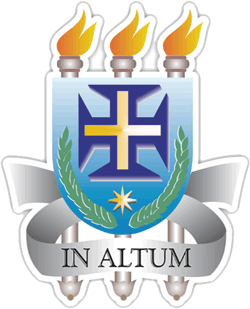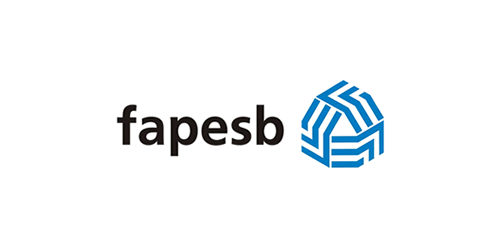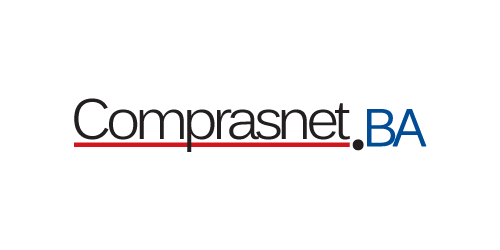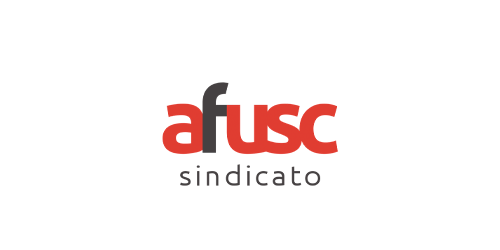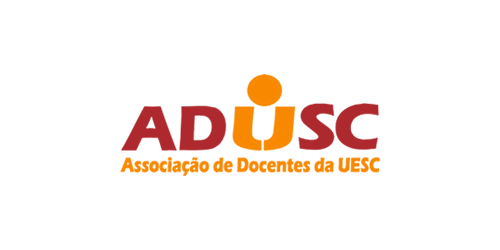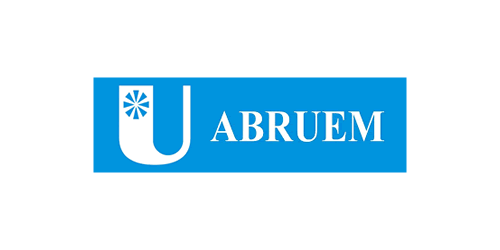Programa de Pós-Graduação em Letras: Linguagens e Representações
Presentation
- About us
- Objectives and Aims
- Overview
- Infrastructure and Resources
- Contact us
A postgraduate program in which it is possible to approach research objects in a non-excluding way is an alternative to traditional programs, which emphasize, especially, the symbolic goods previously legitimized by the Academy. In the post-industrial context, it is a perspective that, far from belittling the approaches of the past, only widens them to demand more attention to the dialogue between knowledge and fields of expertise.
Coherent to such guidelines the Programa de Pós-Graduação em Letras: Linguagens e Representações (Postgraduate Program in Languages and Representations) of the Universidade Estadual de Santa Cruz (UESC), instituted according to Official Letter CAPES/CTC/CCA nº 567-13/2007 and CONSU Resolution nº 08/2007, already signaled the possibility of responding to the demands for empowering of a large part of Brazilian society. it is necessary to emphasize that indigenous people, black people, women, homosexuals e other genders, seen as non-heirs of cultural goods, very often did not obtain consideration in the country's historical records and in its literary canon, nor were contemplated in the dissemination of Citizenship and Human Rights. The possibility of reversing this logic guides the Program's professors and students' training since the effective beginning of its activities in 2008.
The geographical scope of the PPGLLR and, therefore, of UESC, covers predominantly the southern coastal region of Bahia, located in the micro regions of Ilhéus/Itabuna, Valença and Eunápolis/Porto Seguro, where a population of almost 2 million inhabitants live. The Department of Arts and Liberal Arts (DLA) of the university graduates an average of 90 students per year, from its undergraduate degree in Liberal Arts and the bachelors in: Social Communication, with qualification in Radio and TV; Foreign Languages Applied to International Negotiations (LEA). If the Program had not been implemented many of them would only be able to continue their studies by migrating to Salvador or other cities in the countryside.
The PPGLLR was awarded grade 3 in the CAPES Triennial evaluation of 2007/2009 and concept 4 in that of 2010/2012, maintained in CAPES Quadriennial evaluatin of 2013/2016, recognizing its commitment to consolidate the Master's Degree in Liberal Arts in a social space that, in addition to greatly needing it, was demonstrated able to do so efficiently The Program has already formed 146 masters, standing out for the constant participation of students and professors in national and international events and for a considerable increase in scientific production and research and outreach program projects that, coordinated by their professors, focus mostly on the improvement of human resources in the field of Language of Basic Education and in graduation in Liberal Arts and related areas.
Objectives
The main objective of the Postgraduate Program in Liberal Arts: Languages and Representations is to form critical masters and researches, through the study of language and its multiple representations, with emphasis on theoretical-methodological approaches that privilege artistic, cultural, literary, linguistic and mediatic productions, aiming at a reflexive educative practice and social inclusion. Without losing sight of the symbolic goods taken as the most representative of literature and culture, nor the diversity of traditions, uses and linguistic social practices in various spaces and times, we privilege: the reflexive domain over various representations; the study of language / speech in an interactive process, focused on research, the teaching-learning process and the production / reception of speeches.
Our specific objectives are:
- to bring together several areas of knowledge of HEI, within the area of Languages and Representations, in order to allow the exchange of experiences and the construction of knowledge that incorporates and integrates multiple perspectives;
- to enable the congregation of professionals who can act in the training of human resources destined to teaching in Liberal Arts courses, in other specialization courses in the same area and in related areas;
- to improve the quality of undergraduate courses in Liberal Arts and related fields, not only through the formal qualification of teachers who work in such courses / areas, but mainly by introducing a more integrative approach to the representation process, involving cultural, literary and linguistic studies;
- to refine human resources, considering that the training in the relation Languages and Representations constitutes an innovation;
- to develop actions with the communities of the region, through research projects and disciplinary contents, that allow the access and valuation of their cultural capital, as identitary data.
Aims
Based on a constant process of self-evaluation, we set as prioritary general goals, in Quadriennium 2016/2018, to extend the reach of the PPGLLR, to implement Doctoral course in its scope and to achieve concept 5 in the CAPES Quadrennial Assessment. In order to achieve this aim, we pay particular attention to the training of educators who are committed to the social insertion and quality of scientific and technical work, both student and teacher. With this objective in mind, we reiterate our concern with the balanced distribution of teaching work, especially with regard to the student's counseling. In addition, we seek to maintain in a qualified manner the interinstitutional partnerships already established and to improve the internationalization actions.
Among the purposes established in the previous Quadriennium CAPES, to which we have given continuity, we highlight the measures designed to promote transparency, which consist in continuously updating, on this website, the criteria for student selection and accreditation, professors' loss of accreditation re-accreditation; the offer of disciplines, the profile of alumni, information about research activities and projects, publications made, documentation and current standards, events promoted and other news of public interest. Another goal of proven effectiveness is the Internal Monitoring Seminar, held annually, which considers the results of evaluations received, establishes action plans and discusses / makes possible loss of accreditation and re-accreditation of professors.1 AREA OF CONCENTRATION AND RESEARCH LINES: As amended by its regulation, approved by Resolution CONSEPE nº 29/2015, the UESC Post-Graduate Program in Languages and Representations is organized around an area of concentration - Language Studies - And two lines of research. The first - (Line A) Literature and Culture: Representations in an Interdisciplinary Perspective - having comparativism and interdisciplinarity as its cornerstones. Their researches privilege areas of dialogue with biographical space, history and memory, moving in particular through the theoretical aspects of cultural and decolonial/post-colonial studies. The second line of research - (Line B) Language in an Interdisciplinary Perspective turns first and foremost to the interdisciplinary theoretical and methodological approaches characteristic of Applied Linguistics and Discourse Analysis, from which, it presents ramifications resumed in topics like: teaching / learning of languages (Mother and Foreigner); translation studies; training of language teachers; literacy; language and identity; language and discourse; discursive genres; argumentation.
2 DISCIPLINES: Committed to strengthening the research lines and to the preparation for teaching, in basic and superior education, the PPGLLR structures its curriculum with two compulsory subjects of the Common Domain - Languages and Representations and Scientific Methodology - attended by students of the two lines of research. The first discipline is also shared between teachers of line A and line B, in order to operate as an effective implementation of the interdisciplinarity proposed by the Program. 21 other disciplines of Specific Domain are distributed between the two lines of research: 10 for line A and 11 for line B. The grid is completed by the following activities: a) Dissertation-Oriented Research; B) Qualification Examination; C) Teaching Internship; D) Interdisciplinary Research Seminar.
3 ACADEMIC STAFF: The framework of the PPGLLR is composed of 15 permanent professors and 4 collaborating professors, trained in recognized national and foreign institutions, thus demonstrating a positive diversity, also verified in relation to the areas of knowledge in which they are inserted, strengthening the interdisciplinary proposal of the Program and of its thematic nuclei. In its totality, the permanent body coordinates scientific research projects and integrates research groups registered in the DGP / CNPq, with 16 of them leading those programs. A large fraction participate in study and research associations, sectoral chambers, higher colleges, editorial boards of national and foreign magazines, development agencies; they also work as reviewers of scientific journals, in commissions examining theses, dissertations and qualifications of other postgraduate programs, as well as in competition benches for teaching and career promotion in other HEIs.
4 SELECTION OF STUDENTS: The selection process is annual and defined by a specific call notice, prepared by the Special Selection Committee, elected in an open meeting, with the participation of all academic staff and the student representative. Each call notice of the selections made, since the implementation of the PPGLLR, is available on this website. In general terms, the calls for papers define the criteria for selection, present the target audience, the required documentation, thematic guides for the elaboration of the expository text and the number of places per lecturer, providing on the inscriptions, the selection process and other observations.
5 PROFILE ALUMNI: The PPGLLR enables the dialogue between Linguistics, Literature and related areas, hoping that masters formed in its sphere commit themselves to defend democratic principles fundamental to the construction of a society freed from social exclusion. The Program seeks to train professionals able to improve the quality of basic education in the area of Languages, as well as undergraduate courses in Literature and related areas, mainly through a perspective of a more inclusive approach to the representation process, involving cultural, linguistic studies And literary texts in an articulated way, which consists of innovation (See link Egressos/Quadro de Acompanhamento on this homepage).
6 EXCHANGES, PRODUCTION OF KNOWLEDGE AND STUDENT TRAINING: We emphasize the continuous exchange with other graduate programs and other undergraduate programs at UESC or other institutions. Activities developed by the 4 Continuing Action Outreach Programs coordinated by PPGLLR professors - Internal TV Circuit, Streamlining English Language Teaching, PROEDA and Canon Reviews – involve professors from different HEIs, in addition to being open to educators from public and private networks and to the university community. The first one seeks to create alternative media spaces within the institution, while the following are focused on the training of human resources in basic education, seeking to improve the teaching of foreign languages, Potuguese language and their respective cultures. Furthermore, all of our research projects result in a significant number of publications and technical work, with considerable evaluation by the competent bodies. Information about events organized by the Program are listed on this homepage, in a specific link, the main ones being: 1) "Languages and Representations in Debate"; 2) Journey of Literature, History and (Auto)Biography; 3) "SEDIAR –International Seminar on Studies on Discourse and Argumentation (SEDIAR - Seminário Internacional de Estudos sobre Discurso e Argumentação)".
7 INTERINSTITUTIONAL ALLIANCES AND SOCIAL INSERTION: Formally, the PPGLLR has an agreement with the Universidad Integrada del Alto Uruguay y de Las Misiones -Integrated University of Alto Uruguay and Las Misiones – (URI-FW) and the International Cooperation Agreement with the Università Ca’Foscari de Veneza - Università Ca'Foscari of Venice - (UNIVE), whose actios of bilaterality and reciprocity are specified on this page in specific links. Professors of the program produce didactic-institutional material and contribute to undergraduate courses in Liberal Arts, Distance Education modality (EAD) and the Paulo Freire Platform (PARFOR) of UESC.One part of the teachin body assist in nucleating postgraduate studies in other places and in the university itself, in this case, cooperating with the Professional Master in Liberal Arts (PROFLETRAS). Students and professors of the program participate in several national and international reference events, and interinstitutional research groups, some of them with the participation of basic education teachers.
8 PROFESSORS QUALIFICATION: 12 PPGLLR professors completed post-doctoral training, 8 in national institutions and 4 abroad, totaling 63.15% of the teaching staff. The new Teacher Training Plan of the Program, approved at the 44th ordinary meeting of its Collegiate, held on November 16, 2016, updated on February 18, 2018, and available on this website, provides for another 8 postdoctoral studies abroad by 2020, two of which are already under development at the University of Buenos Aires during the year 2018.
9 PUBLICATIONS: PPGLLR's professors and students organize several publications or participate, in increasing progress, as authors and/or co-authors, as related in a specific link on this homepage. The Program maintains two journals: A) Litterata: Journal of the Center for Portuguese Studies Hélio Simões; B) Eid&A – Electronic Journal of Integrated Studies in Discourse and Argumentation.
10 STRONG POINTS: The PPGLLR stands out for the effective interdisciplinary dimension on which its foundations are based, which have enriched class discussions and extra-class activities. By intermingling theoretical and critical knowledge and perspectives from areas related to the field of linguistic and literary studies, it demonstrates organicity, clear intellectual orientation, articulation between theory and teaching practice. The commitment of the faculty and students to the basic ideas and objectives of the Program strengthens its regional role, considering the great demand that has marked the processes of selection from year to year. We also highlight the quite satisfactory profile of the people already titled; the non-endogenous formation of the teaching staff that, in frank expansion, comes from several areas, but preferably, from Literature and Linguistics; the diversity of scientific and technical production; the increase in research projects and the number of participants coming from other institutions, demonstrating the scope and dissemination of the Program's proposals; the average term of dissertation defenses: 26,12 months in the 2013/2016 Quadriennium; 25 months in the 2017/2018 biennium. Another factor worth mentioning is the participation of professors in activities of social insertion, interinstitutional partnership and solidarity, postgraduate nucleation and integration with graduation.
1. OPERATION
1.1 Administration: The managing board of the PPGLLR Collegiate is composed of professors and a student representative elected by the permanent faculty body and by the students, respectively, for a 2-year term. Information on the program’s office hours and personnel is available at: http://www.uesc.br/cursos/pos_graduacao/mestrado/letras.
Information on granting and monitoring of scholarships, and similar selection processes, can be found at http://www.uesc.br/cursos/pos_graduacao/mestrado/letras/index.php?item=conteudo_regulamento.php.
1.2 Location and facilities: We have 7 classrooms and 2 rooms for student studies at UESC’s Max de Menezes Pavilion, with projection equipment and WiFi network, as well as an equipped auditorium with capacity for 80 people. The Collegiate is located on the first floor of this building, in Room 2Db, equipped with a comfortable structure for internal work and service to the public.
1.3 Integration: The pavilion in which PPGLLR is located congregates UESC's stricto sensu postgraduate programs, which also provides other classrooms or extra activities and 3 auditoriums: a) Central Auditorium; b) Jorge Amado Auditorium; and c) Auditorium of the Administrative Tower (http://www.uesc.br/auditorios).
We maintain important interaction and occasional working partnerships with the following Centers: a) Kàwé - Center for Afro-Bahian Regional Studies of UESC (Núcleo de Estudos Afro-Baianos Regionais da UESC; http://www.uesc.br/nucleos/kawe/index.php); and b) NAU - UESC Arts Center (Núcleo de Artes da UESC; http://www.uesc.br/nucleos/nau/index.php).
2. FACULTY
We have 19 professors, 15 of them permanent and 4 collaborators.
2.1 Diversified educational background: Our faculty comes from different institutions and majors, but with a large predominance of the areas of Literature and Linguistics. The postgraduate areas are also varied and, thus, orbit around the interdisciplinary proposal of the Program.
3. LABORATORIES AND OTHER FACILITIES
3.1 IT and Multimedia Equipment: UESC's Department of Letters and Arts offers 1 computer lab and 2 multimedia rooms. The Teaching Major in Literatures and Foreign Languages offers 1 professor’s lounge and 7 classrooms at Adonias Filho Pavilion, all equipped with Projectors and glass writing boards. In addition to these spaces, it is possible to book multimedia rooms and computer labs from any other department and/or collegiate.
3.2 Computer resources
For examination panels, meetings and other activities, when carried out in long-distance, there is the videoconference structure of NBCGIB - Center of Computational Biology and Biotechnology Information Management (Núcleo de Biologia Computacional e Gestão de Informações Biotecnológicas; http://nbcgib.uesc.br/nbcgib).
Located in this Center, the CACAU system (Centro de Armazenamento de dados e Computação Avançada da UESC) supports the storage and data processing needs of the research carried out at the University (http://nbcgib.uesc.br/cacau).
The Technological Innovation Center (NIT) promotes innovation and protects the inventions generated by university research, aiming to integrate it into the community and contribute to the cultural, technological and social development of the region (Núcleo de Inovação Tecnológica; http://nit.uesc.br/portal).
3.3 Extension Programs Coordinated by PPGLLR Faculty Members:
a) The Internal TV Circuit (TV UESC) operates as a laboratory to discuss new possibilities for experimentation in audiovisual languages. The videos are produced in a multipurpose studio, in 2 video workshops and in 5 laboratories which are run by the Department’s Social Communication Bachelor’s Undergraduate Program, also located at Adonias Filho Pavilion (Circuito Interno de TV; http://www.uesc.br/cursos/graduacao/brazarelado/communication/ tvuesc/index.php).
In the same Pavillion, the following extension programs occupy rooms equipped with air-conditioning and WiFi network:
b) Hélio Simões Center for Portuguese Studies (CEPHS) (Centro de Estudos Portugueses Hélio Simões; http://www.uesc.br/dla/cephs/index.php?item=conteudo_quemsomos.php);
c) Making the Teaching of English More Dynamic at UESC (Dinamizando o Ensino de Língua Inglesa; https://sites.google.com/site/estesinversos/project-de-extensao);
d) PROEDA: Program for the Dissemination of Studies on Discourse and Argumentation (Programa de Divulgação dos Estudos sobre Discurso e Argumentação; http://www.uesc.br/cursos/graduacao/licenciatura/letras/proeda);
e) Canon Reviews Extension Program (Extension Program; LINK).
3.4 Research operation and development: Research groups and projects coordinated by PPGLLR professors use the facilities of the Foreign Languages Translation Center, distributed in 3 rooms, with air-conditioning, internet conncection, a computer lab and bibliographic collection (Centro de Tradução de Línguas Estrangeiras; http://www.uesc.br/cursos/graduacao/licenciatura/letras/index.php?item=conteudo_centrolab.php).
Through the CAPES/FAPESB Technical Cooperation Agreement (Public Call #003/2014), we approved funding resources for research and study missions in Brazil or abroad, as well as research and teaching missions, and scientific events held abroad.
4. LIBRARY
UESC’s Central Library (BC) is integrated to the facilities of the Governor Paulo Souto Cultural Center; it allows remote access to information and services at <http://www.biblioteca.uesc.br>.
The Central Library serves the informational needs of users and participates in various cooperative networks and services, such as: Biblioteca Nacional (National Library); Antares Network; Rede Bibliodata, managed by Getúlio Vargas Foundation. It also has access to several databases through CAPES Journal Portal (Portal de Periódicos) and the Programa de Comutação Bibliográfica (COMUT), besides offering a Digital Library of Theses and Dissertations (Pergamum Network).
Team
Prof. Dr. Isaías Francisco de Carvalho – Coordenador
Profa. Dra. Inara de Oliveira Rodrigues - Vice-Coordenadora
Jaíne Andrade Pereira – Secretária
Rosa Karolina Wohlfromm – Auxiliar Técnico-Administrativa
Address
Pavilhão Max de Menezes, 1º andar, Sala 2Db
Campus Soane Nazaré de Andrade
Rodovia Jorge Amado (Ilhéus-Itabuna), km 16
CEP- 45662-000 - Ilhéus-Bahia
Managment time
Morning: from 8am to 12pm
Secretary: (73) 3680-5461
Afternoon: from 1:30 pm to 4:30 pm
Coordination: (73) 3680-5647
E-mail: ppgl@uesc.br
